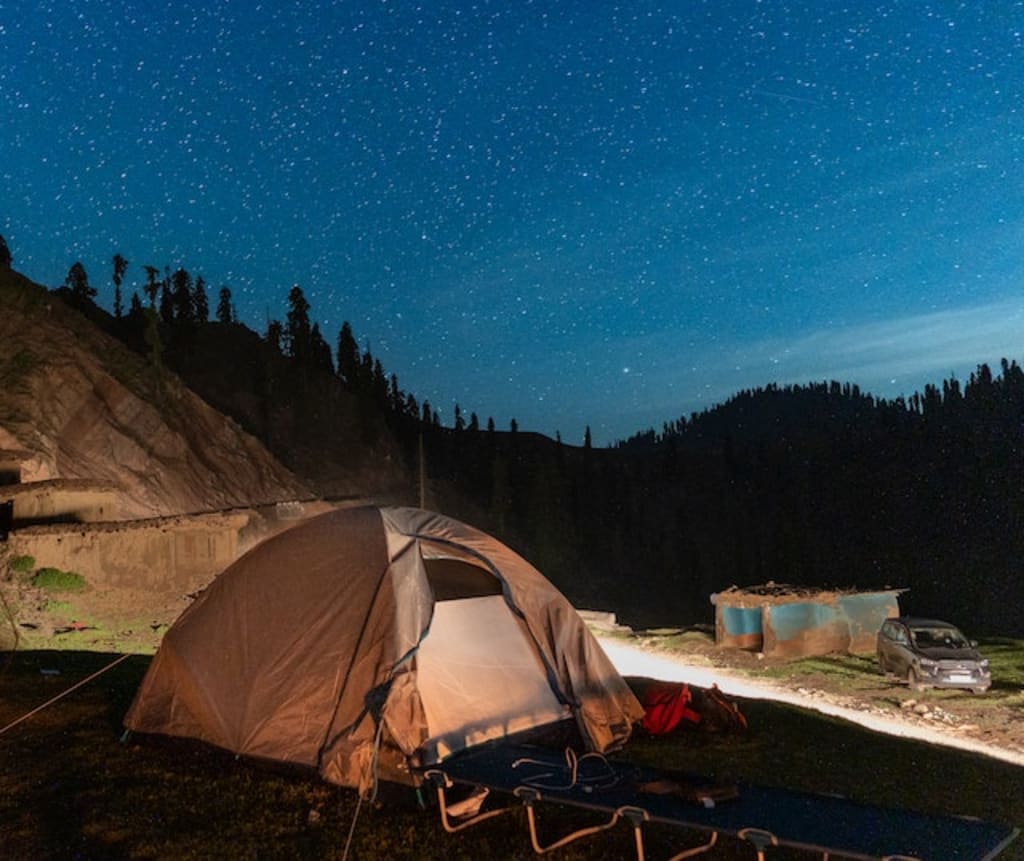Camping in the Great Outdoors: A Guide to Responsible and Respectful Camping"
Preserving Nature for Future Generations: Essential Do's and Don'ts
By serdar ebrisimPublished about a year ago • 3 min read
Like
Share

Camping in nature is a wonderful way to connect with the great outdoors, but it is important to remember that we are visitors in these natural areas and must act in a way that protects and preserves the environment for future generations. Here are ten rules to follow while camping in the great outdoors.
- Choose a designated campsite: Pick a campsite in a designated area where human activities have minimal impact on the environment. This helps protect sensitive areas and wildlife habitats, and also ensures that you are camping in an area where you can safely pitch your tent and enjoy nature.
- Follow Leave No Trace principles: Pack out all your trash, recycle when possible, and leave no trace of your presence. This means that you should take all your garbage with you when you leave, including food scraps, and should aim to leave the area as you found it, or even better. The Leave No Trace principle helps to ensure that nature is protected and preserved for future generations.
- Use a camping stove for cooking: Avoid building campfires, which can damage the environment and be dangerous in some areas. If fires are allowed, use established fire rings and burn only small sticks and twigs. Building fires in areas where they are not permitted can result in damage to the environment and can be a safety hazard, so always check local fire restrictions before lighting a fire.
- Respect wildlife: Keep a safe distance from wildlife, don't feed them, and store food securely to avoid attracting animals to your campsite. Wild animals can be unpredictable and may see humans as a threat, so it is important to give them space and respect their natural habitat. Storing food securely also helps to protect wildlife from being attracted to your campsite, which can be dangerous for both the animals and campers.
- Respect other campers: Keep noise levels down, respect others' privacy, and be mindful of your impact on the surrounding area. Camping is an opportunity to connect with nature and enjoy the peace and quiet of the great outdoors, so be considerate of others and keep noise levels to a minimum.
- Do not cut down live trees or damage vegetation: Use established fire rings or camping stoves for cooking, and don't disturb the natural environment. Cutting down trees or damaging vegetation can have a negative impact on the environment and the ecosystem, so always use established facilities and be mindful of your impact on the surrounding area.
- Do not litter: Pack out all trash, including food scraps, and recycle when possible. Littering can harm wildlife and detract from the natural beauty of the area, so always pack out all your trash and recycle when possible.
- Do not pollute water sources: Don't wash dishes or bathe in lakes or streams, and use biodegradable soap when washing. Water pollution can harm wildlife and impact the quality of the water, so always use designated facilities for washing and be mindful of the impact of your activities on the environment.
- Do not drive off-road: Stick to designated roads and trails to protect sensitive areas and wildlife habitats. Driving off-road can cause damage to the environment and can be a safety hazard, so always stick to designated roads and trails when exploring the area.
- Do not leave food out: Store food securely to avoid attracting animals to your campsite and dispose of food waste properly. Leaving food out can attract wildlife to your campsite, which can be dangerous for both the animals and campers. Proper disposal of food waste also helps to reduce the impact of human activities on the environment.
In conclusion, camping in nature can be a wonderful and
About the Creator
serdar ebrisim
Serdar, a retired soldier with a wealth of life experiences, brings a unique perspective to his writing. At 40 years old, he has a passion for both reading and nature, and has found a creative outlet in writing articles.






Comments
There are no comments for this story
Be the first to respond and start the conversation.